Expert PhD Primary Data Collection Service
Get Professional Primary Data Collection Service Through PhD Assistance Research Lab
Struggling to collect primary data?
Trusted Primary Data Collection and PhD support
Primary data collection – From the Top-Class Universities across the Globe
Gathering primary data is among the most difficult parts of the PhD dissertation. To gather primary data, you need to be very familiar with research design, ethical issues, sampling design, and data collection procedures. It is often the one part of the dissertation that is the most important and decisive because this part contributes the most to the quality and validity of the data you have collected and the validity of the overall research.
Compared to other chapters, reviewers will evaluate primary data collection section for the following:
- The sampling strategy (for example, probability vs. nonprobability, stratified vs. convenience, etc.) and whether it fits with the research aims, and the population.
- If the tools of data collection (for example, surveys, interviews, focus groups, experiments, etc.) are appropriate and thoroughly justified.
- How the researcher negotiates ethical issues (for example, informed consent, privacy, and confidentiality).
- How the data are collected systematically, accurately, and without bias, demonstrating reliability and validity.
- How well the researcher described the data collection process and the challenges they encountered during the process.
This is where many researchers land in trouble. Typical problems could consist of: A poor sampling design; a failure to use the appropriate method of collecting data; a lack of attention to ethics; and weak documentation of the primary data collection activities. Any lapse or inconsistency in the actual primary data collection renders the dissertation invalid, and this commonly leads to delays, revision, or rejection of the dissertation.
At the PhD Assistance Research Lab, we help to navigate around all these issues. We support you with a team 100+ SMEs (subject matter experts) located in UK, USA, and other top universities in the world, where tailored support in the planning, executing and analysing of primary data collection has been developed and tested in real research projects! Our experts assist you by:
- Develop a valid plan for primary data collection that is consistent with your research objectives, to include appropriate sampling and adequacy of data collection tools.
- Determine the data collection method(s) (surveys, interviews, experiments) that best suit your research design.
- Address ethical issues and comply with ethical and research guidelines.
- Collect and record data in an organised, systematic and accurate manner to ensure reliability and validity.
- Analyse the data and interpret everything in relation to your research objectives.
By addressing these fundamental issues, we are making sure your primary data collection is sound, valid, and ethically defensible enabling you to avoid some of the common issues and produce an excellent PhD dissertation work.
With our team of experts from top-tier institutions in the UK, Gulf, Europe, and globally, we are providing an excellent academic experience, practical governance for your data collection process, and more personalised guidance, to ensure that your approach to collecting data is sound and will lead to success in your research.
100% Plagiarism-Free and AI Detection Cleared. Our guarantee to all academic research projects no plagiarism on academic projects or academic supports including theses, dissertations, or manuscripts. We are committed to each research supply being checked and screened with Turnitin, WriteCheck, and other AI tools for true human authorship and quality of research.
Our researchers use peer-reviewed journals and credible academic sources from:
- Scopus
- PubMed
- IEEE Xplore
- JSTOR
- Springer
- Elsevier
- ProQuest
- Web of Science
We ensure every reference is traceable, current, and cited accurately in the required referencing style (APA, MLA, Harvard, Chicago, Oxford, Vancouver, etc.).
We edit your research work based on your university’s guidelines for structure, word count limit, and citation format. Whether you are studying at IIMs, ox
Whether you’re studying at IITs, IIMs, Oxford, Harvard, Cambridge, NUS, or UGC-recognized institutions, we guarantee that your thesis meets all the academic and formatting standards required.
Our team includes:
- Writers with years of experience on the domain
- Editors with knowledge of English grammar and domain expertise.
- Proofreaders trained in grammar and consistency.
We provide unlimited revisions to address your university feedback.
Whether it’s editing a literature review or methodology reworking or improving suggestions, and our team will work until the client satisfied.
We use the most recent versions of APA, MLA, Harvard, Chicago, and Vancouver citation styles. Our work is properly cited, bibliography and all, and in line with university codes on ethics. Tools for citation management employed are Mendeley, Zotero, and EndNote.
Each project is completed by the dedicated schedule. We offer:
- Minor revisions in 24 hours.
- Major revisions in 48 hours.
- Fast communication (30-minute responses during business hours)
We maintain word counts as required by the university (8,000–80,000+ words), excluding non-content areas such as references, appendices, tables, and figures. No filler content—just intense, academic writing.
We provide complete transparency by sharing all study sources:
- Journal articles
- PDFs and reports
- Datasets
- Lecture notes
- Translated works
- YouTube academic links
- PPTs, legal documents, and more
These help you prepare for viva-voce, future publications, or further coursework.
Our PhD Primary Data Collection Service by Subject Area
PhD Assistance Research Lab provides primary data collection service tailored specifically to your academic needs. We take the lead to develop appropriate data collection methods like survey, interviewing, and observations applicable to your research goals ensuring comprehensible and reliable outcomes and result.
Primary Data Collection Methods We Use
Surveys – Gathering Data from a Population
Experiments – Testing Hypotheses in Controlled Settings
Action Research – Solving Problems Through Data
Interviews – In-Depth Insights
Case Studies – In-Depth Analysis of a Subject
Ethnography – Understanding Cultures and Practices
Focus Groups – Exploring Group Dynamics
Observations – Collecting Data from Natural Settings

Whom We Serve
We help PhD and doctoral students determine and employ appropriate primary data collection methods—surveys, interviews, focus groups, experiments, etc. – to ensure that accurate and reliable data collection can take place for analysis to follow.
We work closely with universities, research departments, and professors in improving data collection strategies, refining research design, and ensuring ethical guidelines as well as academic standards are upheld in the primary data collection process.
For independent researchers, post-doctoral researchers and academics, we provide customised primary data collection services, including designing a data collection tool, supporting participant recruitment, and ensuring the collection of quality data.
We help healthcare and medical researcher community in collecting data on patient outcomes, treatment effectiveness, and medical interventions to ensure the data collection is stringent in randomized clinical trials and healthcare research studies.
We provide tailored primary data collection services, such as surveys, focus groups, and market research, to assist industry and corporate research departments with product development, consumer satisfaction, and organisational performance.
We work with students and scholars from around the world, including the UK, USA, Australia, UAE, India, and Europe, to ensure your primary data collection approaches meet your institution’s requirements, international academic standards, and disciplinary norms.
PhD Primary Data Collection – Service Packages
The PhD Assistance Research Lab has developed a set of structured Service Packages to facilitate the data collection process for PhD dissertations, thesis, admission synopsis and journal articles. Each Package will outline timelines, deliverables and assistance provided by a subject matter expert, to ensure the data collection process is ethical, reliable and academically robust.
Service Plans Tailored to Your Research Needs
Basic Package
- The team will select between surveys and interviews and focus groups and experiments to determine the best primary data collection method.
- The research team will develop a draft data collection plan that fulfils the research goals and hypothesis requirements.
- The first review report will show data requirements together with assessments of feasibility and potential challenges.
- A subject-matter expert will deliver one mentoring session to the team.
- The package offers support to Ph.D. researchers who begin their studies or need to develop their synopsis/admission proposal while planning their primary data collection.
- The team will create data collection instruments, which include surveys and questionnaires, interview guides and other relevant tools.
- The plan outlines both sampling methods and participant recruitment procedures.
- The team will review ethical compliance standards and create documentation for informed consent.
- The team will conduct data collection through surveys, interviews, focus groups and other methods.
- The team will perform data entry operations followed by initial data cleaning procedures for analysis purposes.
- The project includes two mentoring sessions with review feedback.
- Primary data collection with multiple methodologies (surveys, interviews, experiments, etc.)
- Complete recruitment, scheduling, and conduction of data-gathering process
- Cleaning and validating of data and preparing for advanced statistical analysis
- Review for ethical compliance, consent forms, documentation
- Incorporation of findings with dissertation chapters
- Editing, proofreading, and peer review up to the best standards for top journal and university levels
- Defense preparation and support for submission to journals, as well as revision Unlimited mentorship sessions throughout the project duration\

Tools Used for Primary Data Collection
Google Forms
We use Google Forms when collecting large-scale survey data, especially for social science and health-related research integrated with Google Sheets.
SurveyMonkey
SurveyMonkey is used for secure, large-scale surveys with depth of analytics. We use it for initiatives that require detailed reporting cycles and high levels of data security.
Qualtrics
We use Qualtrics to create customised surveys, especially if we require specific question types for a more complex data collection.
Zoom
We use Zoom to engage in remote interviews and focus groups. The transcribing capability saves time when analysing data and ensures we capture content accurately.
Skype
Skype serves as a supplementary option for completing interviews remotely, particularly for international projects when clients want to work with a simpler platform.
Google Docs
We use Google Docs for real-time collaboration on study documents. This makes it easier to share findings, write reports, and edit together.
Notion
It helps us organise workflows and research data, specifically when conducting complex projects involving ongoing task management and several collaborators.
SPSS
We use SPSS for quantitative analysis, such as Regression and ANOVA, to create complete reports for different sectors.
NVivo
We use NVivo to organise, code, and analyse data from focus groups and open-ended surveys. It is for qualitative analysis.
Check at What Stage You’re In & See How You Fit into Our Engagement Model
Matteo

Data Collection Method Justification & Alignment Our team works with students to defend their data collection methods with explanations of how these methods meet the objectives of the research and relate to the hypotheses attached to it.
Amy

Primary Data Collection Design & Planning Our team develops complete data collection plans that align with research objectives through method development. Our team assists you in selecting suitable data collection tools, survey methods, and interview approaches to obtain research data that effectively supports your investigation.
Elena

Sampling Strategy and Participant Recruitment When defining the target population and establishing the most acceptable sample size, the team of experts will help students set up a proper sampling technique.
Daniel

Data Collection Logistics & Execution Our team assists clients with data collection process setup and time management and execution efficiency.
Our Sample & Example Works Speaks
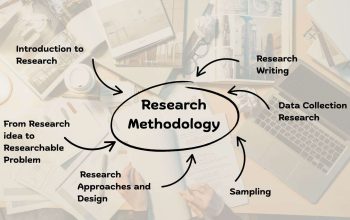
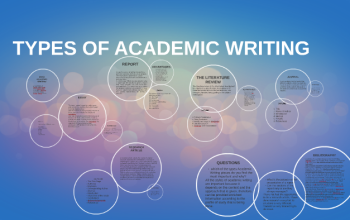

Order process
Submit Your Requirements and Make Payment
Order Confirmation & Expert Allocation
Data Collection, Organization & Preliminary Analysis
Regular Updates & Two-Way Communication
Review
&
Revisions
Final Delivery & Feedback
Our Guarantee
What We promise, we deliver exactly the same
PhD. Assistance Research Lab assists in framing the primary data collection as per the standard university guidelines. We have assisted researchers pursuing their PhD from universities across the globe, such as the UK, the Gulf, Europe, the USA, the Netherlands, Australia, the UAE, Dubai, Kenya, Nigeria, Saudi Arabia, Russia and many more countries. We are aware of the guidelines set by different universities and strictly follow the same.

Plagiarism Free

Unlimited Support

On-time delivery

Subject Matter Expertise

Communicate with your writer

Updated academic resources

Free research articles supply*
Client success stories
Primary data collection
Ensuring Research Integrity through Reliable Data Collection
"PhD Assistance Research Lab ensured the reliability, validity, and added depth to my research by designing interview protocols and surveys."
— Sophie Laurent, PhD Candidate
Efficient Data Organization and Submission
"PhD Assistance Research Lab helped me prepare and submit interview data to the committee by properly organizing and structuring within short deadline."
- Jonas Weber, Doctoral Candidate
Complete Data Collection Process
“I was offered a complete data collection process by PhD Assistance Research Lab, validity checking, and ensured my data is clearly aligned with my research goal and objectives."
— Isabella Rossi, Medical Researcher
Transforming Raw Data into Meaningful Analysis
"PhD Assistance Research Lab helped me by identifying themes, analysing interview data, and relating it to my theoretical framework. Thus, they made my analysis meaningful and manageable."
— Emma Johansson, PhD Candidate
Quality & Compliances
We’ve worked on so many great PhD projects for our clients across the globe, and we’re proud of every single task that we carry out
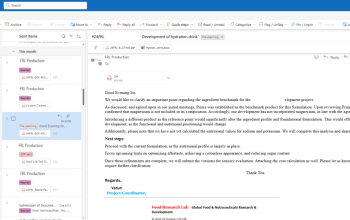
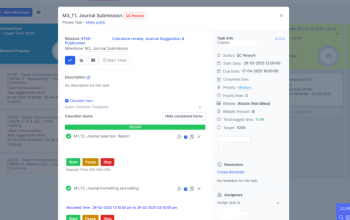
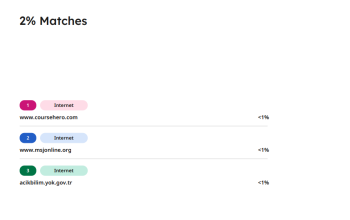
PhD Assistance research Lab provides following methods for primary data collection service.
- Surveys, structured interviews, and focus groups
- Observations and ethnography
- Cross-sectional and longitudinal data collection
- Methods for online and off-line data collection
- Qualitative and quantitative data collection
- Testing participant recruitment strategies - random and stratified sampling
- Pre-testing and piloting your data collection tools
- Validity of surveys and interviews
- Constant attention and quality control
- Accurate and standardised data entry.
- Online survey applications (e.g., Google Forms, SurveyMonkey, Qualtrics).
- Zoom/Skype/recording applications for interviews and focus group data.
- Data management tools (e.g. Excel, Google Sheets, Airtable).
- Data visualization (e.g., Tableau, Power BI).
- Specific tools to help with observing data collection, etc.
- Strict compliance to ethical research standards and protocols
- Participation data will remain confidential, and participants remain anonymous
- Transparent informed consent processes will be used with all participants
- Ongoing ethical reflection and adjustments will be made as data is collected
- Timelines vary depending on the size and scope of the study
- We will provide an estimated time delivery at the end of our initial consultation
- Once the project begins, we are flexible and agile in adjusting our timelines based on the project demands.
- We use customized applications for managing and organizing large amounts of data.
- Data is cleaned and pre-processed prior to analysis for accuracy.
- We use cloud-based applications to ensure that data is secure and easily accessible.
- Our team performs routine data checks, to ensure consistency and data integrity during its collection.
You might also be interested in these









